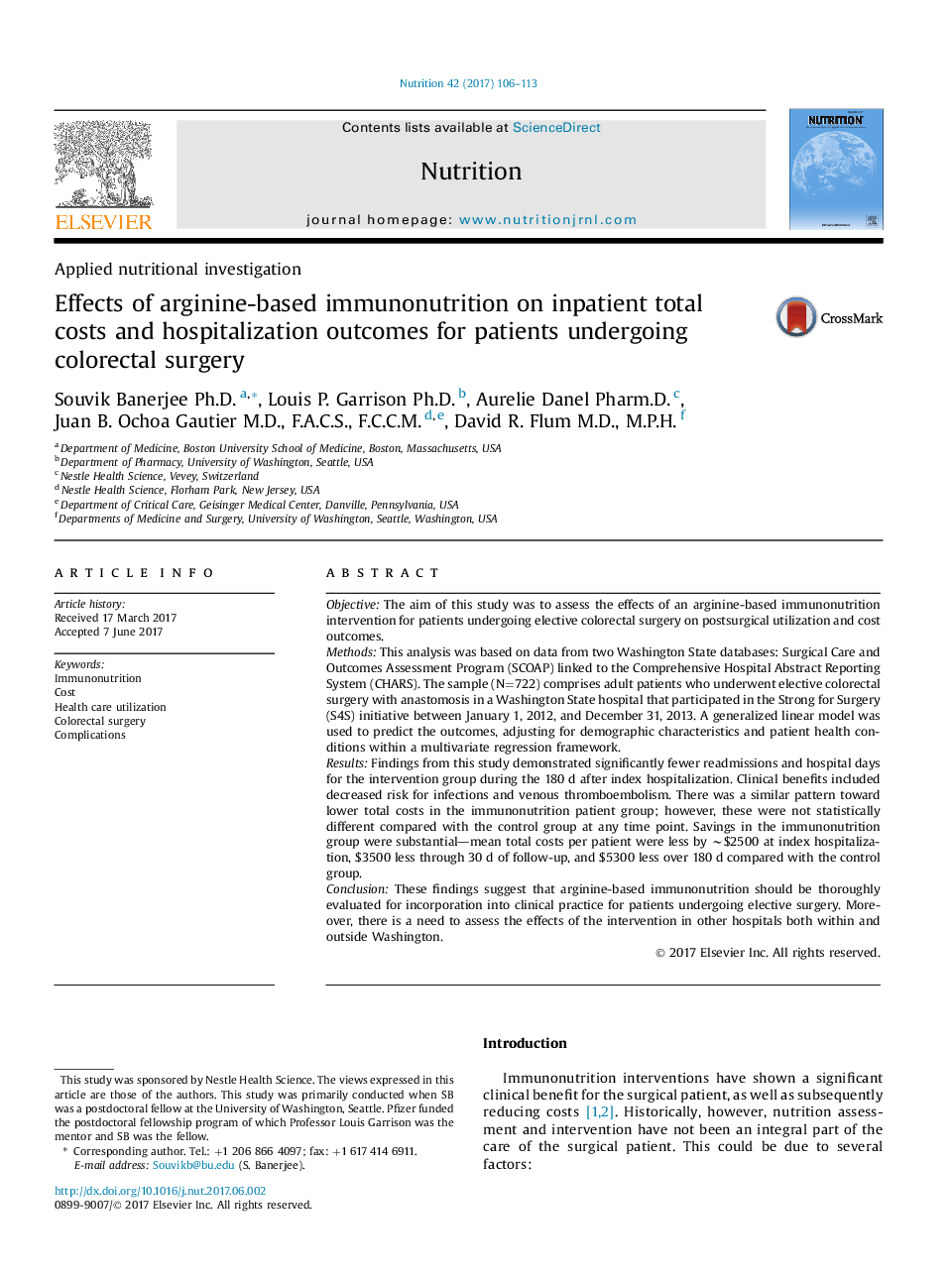| Article ID | Journal | Published Year | Pages | File Type |
|---|---|---|---|---|
| 5656866 | Nutrition | 2017 | 8 Pages |
â¢Clinical benefits of arginine-based immunonutrition included decreased risk for infections and venous thromboembolism.â¢Significantly fewer readmissions and hospital days were reported for the immunonutrition group during the 180 d after index hospitalization.â¢Arginine-based immunonutrition should be thoroughly evaluated for incorporation into clinical practice for patients undergoing elective surgery.
ObjectiveThe aim of this study was to assess the effects of an arginine-based immunonutrition intervention for patients undergoing elective colorectal surgery on postsurgical utilization and cost outcomes.MethodsThis analysis was based on data from two Washington State databases: Surgical Care and Outcomes Assessment Program (SCOAP) linked to the Comprehensive Hospital Abstract Reporting System (CHARS). The sample (N=722) comprises adult patients who underwent elective colorectal surgery with anastomosis in a Washington State hospital that participated in the Strong for Surgery (S4S) initiative between January 1, 2012, and December 31, 2013. A generalized linear model was used to predict the outcomes, adjusting for demographic characteristics and patient health conditions within a multivariate regression framework.ResultsFindings from this study demonstrated significantly fewer readmissions and hospital days for the intervention group during the 180Â d after index hospitalization. Clinical benefits included decreased risk for infections and venous thromboembolism. There was a similar pattern toward lower total costs in the immunonutrition patient group; however, these were not statistically different compared with the control group at any time point. Savings in the immunonutrition group were substantial-mean total costs per patient were less by â¼$2500 at index hospitalization, $3500 less through 30Â d of follow-up, and $5300 less over 180Â d compared with the control group.ConclusionThese findings suggest that arginine-based immunonutrition should be thoroughly evaluated for incorporation into clinical practice for patients undergoing elective surgery. Moreover, there is a need to assess the effects of the intervention in other hospitals both within and outside Washington.
